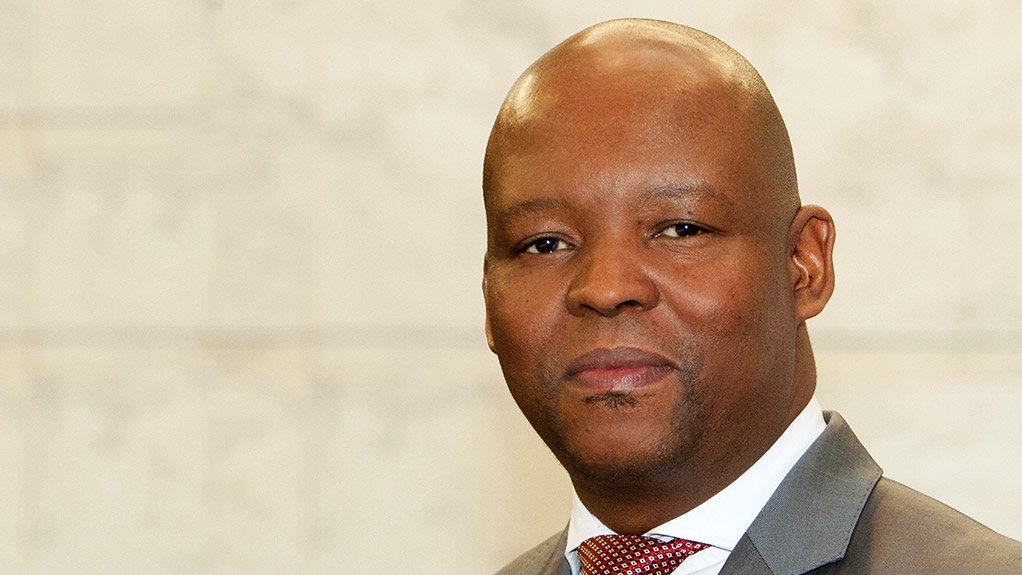Africa has an abundance of energy resources that can be brought online rapidly and cost effectively, says engineering, procurement and construction services provider Black & Veatch sub-Saharan Africa business development director Webb Meko.
With governments realising that no single technology provides the long-term power solution they need to support economic growth and skills creation, he notes that efforts are underway to optimise energy costs and system functionality, support industry and commerce as well as address environmental concerns.
“A blended and balanced energy system, which also includes traditional energy resources and small-scale systems, will result in greater affordability, and access, and will minimise environmental impacts,” Meko points out.
He mentions that in South Africa, there is currently a surplus of generating capacity, but the Department of Energy wants to incorporate advances in coal, renewable energy, gas, and nuclear technologies to enhance the reliability and sustainability of the grid.
Kenya is continuing to use geothermal, solar and wind energy, while also adding off-grid renewable solutions to boost electricity access. Growth of gas-fired power generation and baseload coal plants are also on the horizon.
However, Meko avers that Africa still “has work to do” as it still needs to remove investment barriers, embrace new approaches, and clear other obstacles to broadly plan and implement advanced technologies.
“Experience shows that a systematic and proven approach to project development goes a long way towards building investor confidence and is a means to achieve predictable return on investment.”
Meko indicates that investors are looking for bankable projects that are well developed and delivered by experienced consultants and engineering and construction providers, regardless of technology.
“Proven project execution methods, more comprehensive planning and management, and a stronger focus on project controls give assurances that projects will be completed in a timely and cost competitive manner – and offer solid returns,” he stresses.
Simultaneously, those who deliver projects should be carefully screened and evaluated before and during the tender process, he adds.
“Making tender award decisions based solely on low pricing can be a trap – leading to projects that are not well-planned, behind schedule and end up more expensive in the long run,” Meko warns.
Appointing a trusted specialist that has proven and relevant experience with projects of the size and technology in question and can present concrete project development and execution plans, provides the best path to investment confidence and project execution certainty, he advises.
“Too often, cutting corners on quality and reliability in favour of least cost approaches has proven to be disastrous,” Meko comments.
He says it is encouraging that many African countries are investigating and implementing a variety of project development standards.
Attracting needed financing and investor assurance and engaging the industry’s most capable providers is the recipe for Africa’s sustainable energy future, Meko points out.
Microgrid Operations
Black & Veatch and European multinational energy and automation company Schneider Electric are providing design and construction support for an energy security microgrid at Marine Corps Air Station Miramar, in California, in the US, says Meko.
The project is scheduled to be completed this year, and once fully operational, the microgrid will provide resilience, incorporate renewable energy, and allow operations at mission-critical facilities to continue if the utility power grid is compromised or damaged, he highlights.
Black & Veatch has also been selected by oil and gas producer Shell International Exploration and Production (Shell) to perform engineering, procurement and construction on a new microgrid system at the Shell Technology Centre in Houston, in the US.
“The microgrid will incorporate solar photovoltaic and a natural gas-fuelled reciprocating engine, as well as advanced battery storage technology and other elements, to create a sustainable, resilient, and flexible microgrid system,” he enthuses.
The microgrid is designed to accommodate future additional resources and includes Black & Veatch’s robust, cloud-based data analytics platform, ASSET360, which will provide practical insights about the microgrid’s performance and allow Shell operators to optimise operation based on energy demand, solar production and other conditions.
The platform collects data from the system and monitors both the performance of each component and the overall integrated system in real time; it also calculates generated energy and usage, and can give insights into energy savings. This information enables Black & Veatch to model different energy generation scenarios for system optimisation.
“The microgrid will be a platform for collaborative research undertaken by Shell and Black & Veatch to develop and deploy the next generation of clean and resilient energy technologies,” Meko points out.
Further, the project will be used to test a spectrum of microgrid-use cases with the objective of understanding technical solutions to difficult distributed energy-use cases and to develop better distributed energy solutions for future application, he concludes.
Edited by: Zandile Mavuso
Creamer Media Senior Deputy Editor: Features
EMAIL THIS ARTICLE SAVE THIS ARTICLE
ARTICLE ENQUIRY
To subscribe email subscriptions@creamermedia.co.za or click here
To advertise email advertising@creamermedia.co.za or click here















